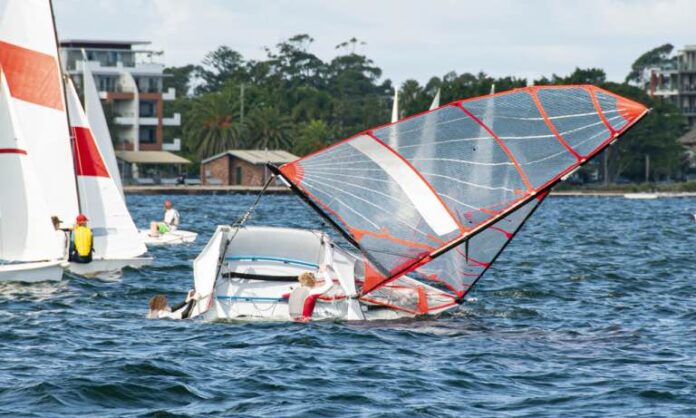Boating is a fun activity that many people love to engage in during their leisure time. However, boat accidents are a common occurrence, leading to injuries and, in extreme cases, the victim’s death.
There has been an increase in reported boat accidents in 2020 compared to other years. According to reports, an increase in the use of recreational boats during the pandemic contributed to a rise in boating accidents. Fortunately, many boat accidents are preventable if users and operators follow the required safety measures.
If you or your loved ones have encountered such an incident, you should always seek expert help. Hiring a personal injury lawyer if you are involved in a boat accident is something that we vouch for. These experts know the ins and outs of personal injury law and can help you seek the compensation that you deserve.
With that being said, let’s take a look at some things you should know about boat accident injury cases.
Who is Liable in a Boat Accident?
A boat accident could result from the negligence of one or more parties. When filing a lawsuit for such accidents, the victim must prove that the at-fault party’s negligence resulted in loss or damage. Any of the following parties can be held liable for a boat accident:
- The boat operator: The boat operator can be liable for the accident if they do not perform standard safety as per boating regulations. Additionally, signs of intoxication or recklessness are valid reasons to hold boat operators accountable. Boating operators are required to provide correct-sized life jackets for each passenger and prevent passengers from behaving recklessly. Failure to do so may be considered negligent.
- The passengers: The passengers on board a boat must adhere to safety protocols. These protocols are there to ensure the safety of the passengers. When a passenger fails to follow the safety rules, such as not wearing a life jacket after it was provided, they may be held liable for whatever injury they suffered and may not qualify for compensation.
- The rental company: Boat rental companies must fix any maintenance problems before they become a danger to people. If the rental company fails to carry out these routine maintenance checks, it becomes liable for any accidents that may result from them.
- The boat manufacturer: Some boat accidents are due to manufacturing defects that were probably not detected on time. The manufacturer will be held liable for the accident if that is the case.
Factors that Contribute to Boat Accidents
Several factors contribute to boat accidents, and they include:
Machinery Failure
According to the United States Department of Homeland Security, machinery failure caused more than 7 percent of boat accidents in 2018. There is no sure way to prevent machinery failure, but with constant inspection and regular maintenance, boat machinery failure will be reduced. Boat operators should also perform routine maintenance checks before starting engines.
The Inattention of Boat Operators
This is perhaps one of the leading contributing factors to boat accidents. Boating requires the maximum attention of the operators. Anything that takes the operator’s attention from the boat’s occupants, the environment, or even the vessel itself can lead to accidents.
Therefore, boat operators must take a break if they find out they are getting distracted, as this will go a long way toward minimizing the occurrence of accidents.
Over Speeding
Boating operators are required to adhere to a specified speed limit. Speeding while boating involves exceeding posted speed limits and operating faster than is reasonable for the conditions. Many accidents result from excessive speed, so operators should adhere to speed limits and slow down in unfavorable weather to ensure safety.
Inexperience
The person operating the vessel may lack boating experience. When this is the case, accidents are more likely to happen. Operators are required to pass a boating exam recognized by the state. While an operator may be issued a license after passing such an exam, it does not mean they have the requisite experience to handle every kind of vessel
Boating operators must take their time and learn all there is to learn about the vessel they are operating. Doing so will help bring accident rates down to the barest minimum.
Not Looking Out Properly
A proper lookout makes it possible for operators to identify danger quickly and avert it. The chances of an accident increase if no one is on the lookout.
Therefore, before putting the boat in motion, it is vital to have someone take charge of the lookout duties. This duty should not be handled by someone distracted but rather by someone willing to give their full attention to it.
Common Boat Accidents
There are different types of boating accidents, and they include:
- Head-on collision with another vessel
- Fire explosion while the boat is in motion or docked
- Towing mishap
- Flooding or capsizing of the vessel
- Drowning of passengers
Damages in a Boat Accident Case
A boating accident victim who decides to file a lawsuit is entitled to economic and non-economic damages. Economic damages are awarded to the victim to cover financial losses incurred due to the accident, including medical bills, boat repair costs, and any other financial losses.
On the other hand, non-economic damages cover the emotional and psychological pain that the victim and their families may have gone through due to the accident. The jury usually estimates this type of damage.
Conclusion
Many boat accidents that have led to injuries and financial losses are preventable. Boat accident victims who suffered injuries due to another’s negligence are entitled to compensation. It is ideal to consult with a personal injury attorney to handle such cases.
